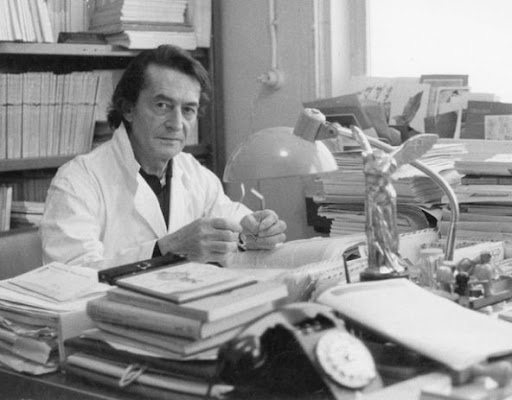
Henri Laborit (1914-1995) was a French surgeon, biologist, and writer known for his contributions to neurobiology and the understanding of stress and behavior. He made significant advancements in several fields, including pharmacology, and his work laid the foundation for modern theories of psychosomatic medicine and the biological underpinnings of behavior.
-
Pioneering Work in Psychopharmacology:
Laborit is perhaps best known for his role in the development of chlorpromazine, the first antipsychotic drug. His research into the effects of this drug marked a significant advancement in the treatment of psychiatric disorders and revolutionized psychiatric care.
- Stress and Behavior:
Laborit extensively studied the biological and psychological mechanisms of stress. He introduced concepts such as the “inhibition of action” and explored how organisms react to stressors, contributing to a deeper understanding of the physiological basis of stress and its impact on health.
- Systems Theory and Complexity:
He applied systems theory to biological and social systems, emphasizing the importance of considering the complexity and interconnectedness of various factors in understanding behavior and health.
- Popularization of Science:
Laborit was also a prolific writer, making complex scientific ideas accessible to the general public. His books and essays often explored the implications of biological research for understanding human behavior and society.
Notable Works:
– La Nouvelle Grille”(1974): In this influential book, Laborit examines human behavior through the lens of neurobiology and systems theory, proposing a framework for understanding the motivations behind actions.
– -“Eloge de la fuite” (1976): Translated as “In Praise of Flight,” this work delves into the concept of escape as a fundamental human response to stress and conflict.
Laborit’s interdisciplinary approach and his ability to bridge the gap between scientific research and its practical applications have left a lasting impact on various fields, including psychology, psychiatry, and behavioral science.
